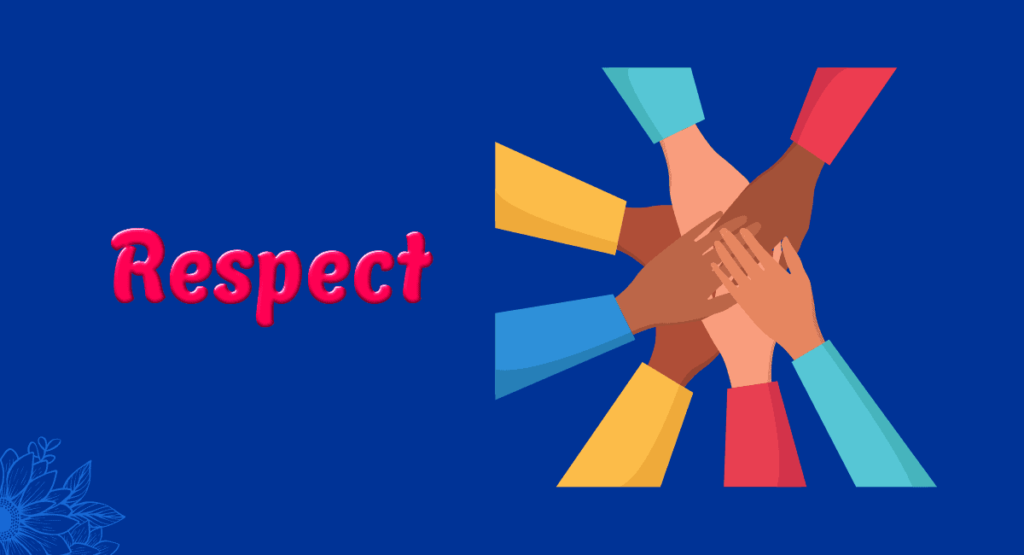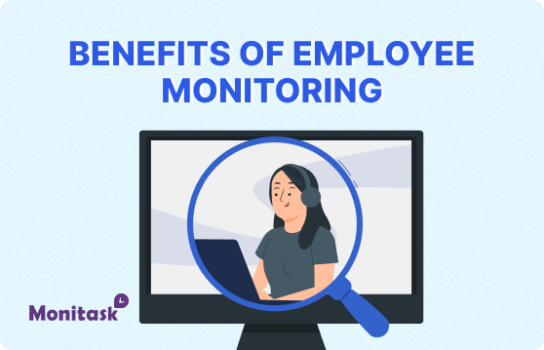Positive Coworker Relationships: How to Build Strong Bonds with Your Colleagues


Picture this—you walk into your office in the morning, and you’re greeted with a friendly “Good morning!” from the person at the next desk.
You feel excited to be back in the office, surrounded by people with whom you have positive relationships.
That feeling may be hard to imagine if you don’t have positive coworker relationships, but it is possible.
Read on to discover why having positive relationships with your coworkers is essential and how you can cultivate them.
The Benefits of Positive Co-worker Relationships

There are many benefits to having good relationships with your coworkers, both for yourself and for your entire team.
On an individual level, when you have strong relationships with those around you at work, you will feel more supported, and creative problem-solving will become more natural. It also makes a big difference in job satisfaction—people with close personal connections with their peers report higher job satisfaction overall.
Having friends at work can create an atmosphere of support where employees feel safe enough to express themselves without judgment or fear of reprisal.
A good relationship creates an open dialogue between coworkers which leads to better understanding among one another and fosters trust within the team environment.
Furthermore, studies show that having friendships at work decreases stress levels for many employees and increases job satisfaction overall.
And lastly, having strong ties to other team members helps build trust and loyalty among colleagues, which can benefit everyone involved.
How To Cultivate Positive Coworker Relationships

Cultivating positive coworker relationships can be challenging; building trust and loyalty between colleagues takes time and effort. But there are some things managers can do to encourage positive interactions between team members that will help foster those bonds over time.
First, establish an environment where everyone respects each other through a dialogue that facilitates hearing all perspectives without judgment or criticism to create an environment where everyone feels respected. Next, create opportunities for team members to build a relationship outside of work; social events such as potlucks or happy hours are great ways for everyone to connect personally.
Finally, recognize individual successes within the group—recognition goes a long way in cultivating strong relationships between coworkers!
The Connection Between Co-workers and Productivity
A Gallup study shows that people with a best friend at their workplace are seven times more engaged in their job. This means that they are more productive and creative due to feeling a connection with those around them.
Developing this kind of bond allows you to get work done faster but also helps you become part of something bigger than yourself—a team that works together towards a common goal.
Additionally, having friends on the job can make complex tasks easier as there is someone who has your back and is willing to help out when needed.
Developing Meaningful Relationships with Coworkers

Building strong bonds with colleagues takes time and effort, but it pays off professionally and personally in the long run. Here are some simple tips for developing meaningful relationships with coworkers:
Respect each other
Respect builds trust, which is essential for any relationship to exist. Show respect by listening actively when your coworkers talk, being mindful of cultural differences, encouraging others’ ideas, Etc.
Get involved
Join committees or clubs in your workplace; volunteer for projects together; attend social events outside work, Etc.
Communicate
Communication is key! Make sure everyone knows their roles in a project, so nothing gets overlooked or misunderstood. Give feedback constructively when needed. Use “we” instead of “I” when discussing projects/plans/goals with coworkers. You must be clear about expectations so everyone is on the same page moving forward.
The importance of positive workplace relationships.

According to an American Academy of Family Physicians study, if you feel supported by your colleagues, you’re likely to stick around in your current job for what feels like eons.
But wait, there’s more! A survey conducted by Indeed has discovered that positive relationships in the workplace are essential for achieving career success. It’s not rocket science that feeling valued and supported can lead to increased job satisfaction and engagement, backed by positive psychology research.
It’s simply astounding to see the impact that positive relationships can have in the workplace. We can create a veritable paradise of happiness and productivity by fostering an environment of support and respect for our colleagues.
Building Strong Bonds with Coworkers
Cultivating strong relationships with our colleagues is critical to creating a positive and productive workplace environment.
But how exactly can you foster strong relationships with your co-workers? It’s all about communication, approachability, and taking an interest in the people around you.
Here’s a closer look at the three critical components of building strong bonds with those you work with:
Being Approachable
If you want to build better relationships with your co-workers, it’s important that they feel comfortable coming to you for help or advice.
That means being open to suggestions and feedback from others and demonstrating your willingness to lend a helping hand whenever needed.
By remaining engaged during conversations and ensuring everyone gets their chance to speak, you let them know their opinions matter.
Showing Interest in Others
Developing relationships requires trust to be present, so getting to know your colleagues personally is essential if you want them to open up to you.
Showing genuine interest in someone else’s ideas or projects can go a long way toward strengthening relationships.
Invite people out for coffee or lunch—even if it’s just once—and use that time to get to know each other better.
This allows everyone involved to become more comfortable sharing ideas and opinions openly without fear of judgment or ridicule.
Communicating Effectively
Effective communication is essential when developing strong relationships with your co-workers.
Ensure everyone knows their role within the team and encourage collaboration between departments whenever possible. If someone has an idea for improvement, be sure your team listens carefully before making any decisions.
Communicating effectively and efficiently will make everyone feel valued and appreciated, which will help create a healthier working environment overall.
Strategies for building trust with colleagues.

When faced with a fellow worker, the best way to build trust is to collaborate and try to understand each other actively.
Instead of focusing on individual needs or goals, focus on similarities and shared successes that you and fellow workers achieve in your same job.
Everyone wants their job to be meaningful, so when you have time to take a break, ask your colleagues about their current projects and show genuine interest and appreciation for the same job you are doing together.
Doing this can help create a common ground for respect and understanding, leading to better cooperation between colleagues. Communication is critical when building relationships with co-workers, so take the initiative to introduce yourself and make an effort to build strong relationships with fellow workers.
Utilize open dialogue by getting to know them personally to identify mutual goals for success. Doing these things can lead to more effective communication, increased collaboration, and enhanced team productivity.
Conflict in the same company can arise from various sources, such as varying goals and expectations, miscommunication, different working styles, and even simple misunderstandings.
A break room set aside for collaboration between team members or colleagues with similar job responsibilities provides an opportunity to discuss problems that may be causing friction in the workplace.
Employees should also be encouraged to openly communicate their opinions and issues to reach an understanding when resolving disagreements.
To successfully address conflict in the workplace, companies must take a structured approach to ensure that everyone feels heard, respected, and empowered by the outcome.
Finally, a manager or other leader within the same company must lead discussions on how to keep communications open and truthful throughout any conversations regarding disputes at work.
Tips for constructively resolving conflicts.

Here are some tips for approaching difficult conversations and constructively resolving conflicts:
Listen Actively
The most important step in managing any conflict is listening actively. When someone is speaking to you, try not to think ahead or plan your response; instead, focus on listening with empathy and understanding. Show that you value their opinion by making eye contact, nodding your head, or paraphrasing their words. Becoming a good listener will demonstrate that you take the subject seriously and care about what they say.
Clarify the Problem
Once everyone has had an opportunity to speak and share their thoughts, it’s time for you to clarify the underlying problem. Ask questions such as “What do we need to solve?” or “What would success look like?” This will help ensure everyone has a clear understanding of the issue at hand before brainstorming solutions together.
Brainstorm Solutions Together
Clarifying the issue, then brainstorming to find the solutions. Encourage everyone to think outside the box and offer creative ideas for solving the problem quickly and effectively.
Try breaking into small groups if too many people are involved. Through the efforts of all involved, this plan will facilitate hearing every voice or idea.
How Can Coworkers Support Each Other?
Working together can lead to excellent results, but as any manager knows, getting everyone on the same page can be challenging.
That’s why offering support and encouragement to your colleagues is so important! Let’s take a look at how coworker support can benefit your business.
The Benefits of Positive Reinforcement
It’s no surprise that positive reinforcement from co-workers can hugely impact morale and productivity at the office. People feel appreciated when their efforts are acknowledged, which leads to heightened confidence and enthusiasm for new projects or tasks.
By showing appreciation for each other’s work, co-workers can offer much-needed motivation in times of difficulty or stress. This kind of positive reinforcement also encourages collaboration within teams and helps build strong relationships that will last beyond individual projects.
Encouragement Creates Clarity
When teams work together, they often hit roadblocks when understanding the overall goal of the project or task.
In these cases, offering encouragement and advice from experienced co-workers can help keep everyone focused on the end goal while clarifying how to get there.
After all, sometimes, just hearing someone else explain something differently can make all the difference!
Creating A Culture Of Support
Most importantly, coworker support creates an environment where everyone feels comfortable sharing their ideas and opinions without fear of judgment or criticism.
This open dialogue makes it easier for teams to brainstorm creative solutions, identify potential risks before they happen, and devise innovative ways to tackle challenging problems.
When employees feel supported by their colleagues, they will take ownership of their work, boosting job satisfaction levels across the board.
Examples of ways co-workers can support each other
Male co-workers can support each other by offering helpful and constructive feedback. We should also celebrate each other’s successes.
Whether it’s a coworker meeting a major project milestone or achieving a long-term goal, recognizing these triumphs strengthens team morale and communicates that everyone’s efforts are valued.
During challenging or stressful moments, male co-workers should remain positive and focused on supporting each other to overcome difficult situations.
This approach of supporting and encouraging each other will create a more productive work environment where everyone depends on one another for success.
Conclusion
We all want our work environments to be productive and enjoyable places where we can grow professionally and personally—nurturing positive coworker relationships is critical to making that happen.
Managers can help foster strong bonds between co-workers, resulting in increased job satisfaction for everyone on the team by creating:
- An atmosphere of respect.
- Providing opportunities for social connection outside of work.
- Recognizing individual achievements within the group.
By showing appreciation for each other’s work, co-workers can offer much-needed motivation in times of difficulty or stress.
This kind of positive reinforcement also encourages collaboration within teams and helps build strong relationships that will last beyond individual projects.


